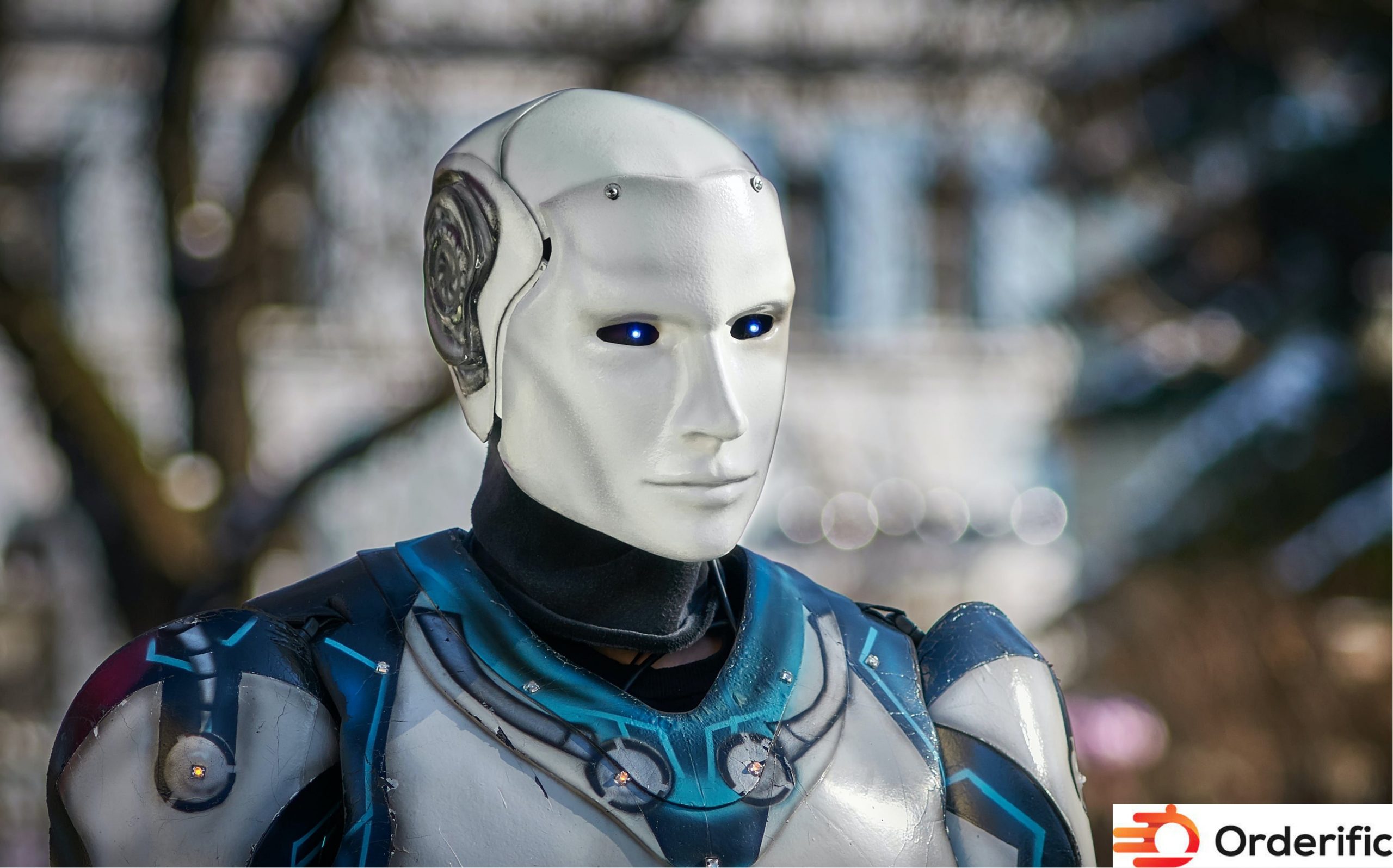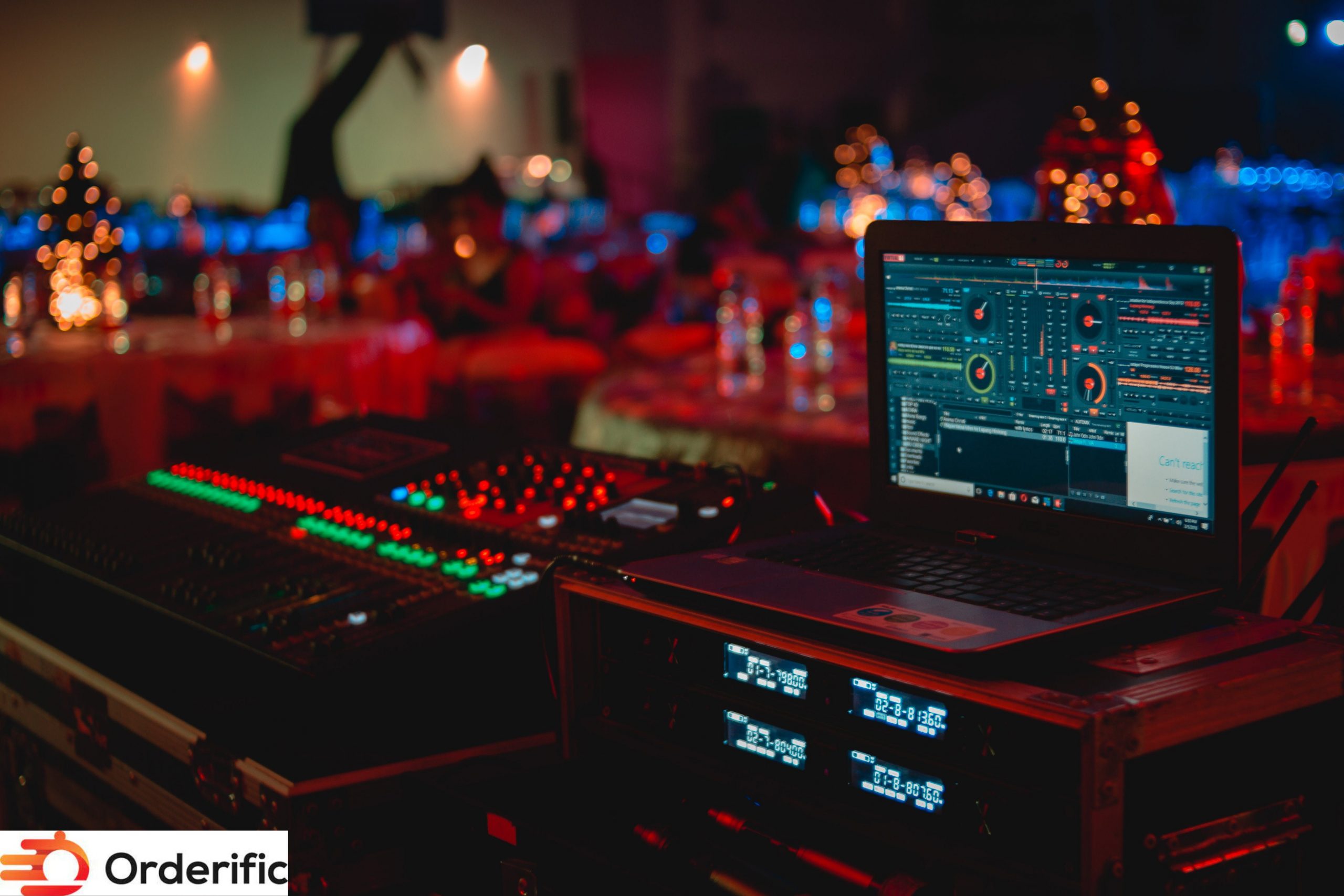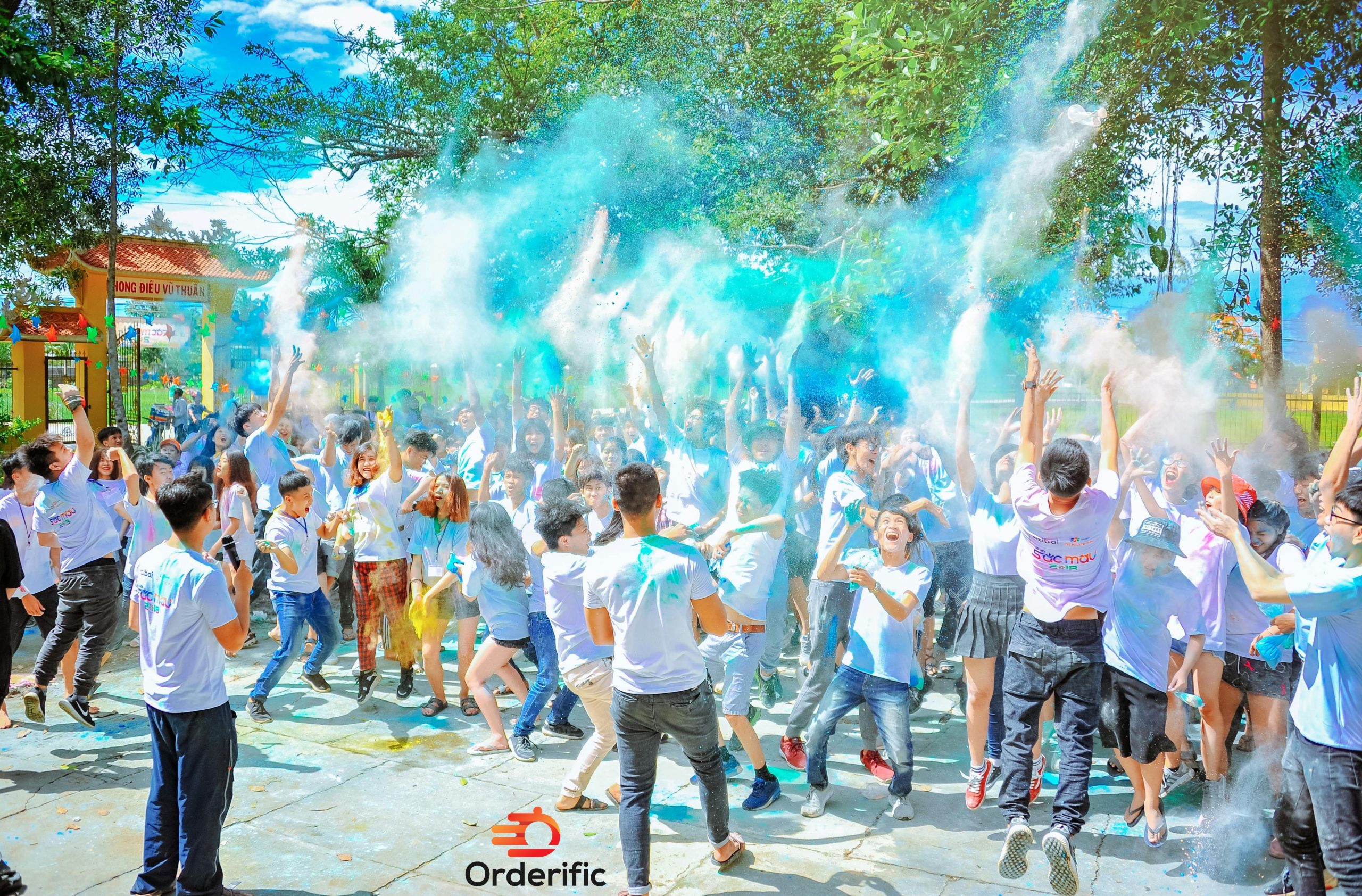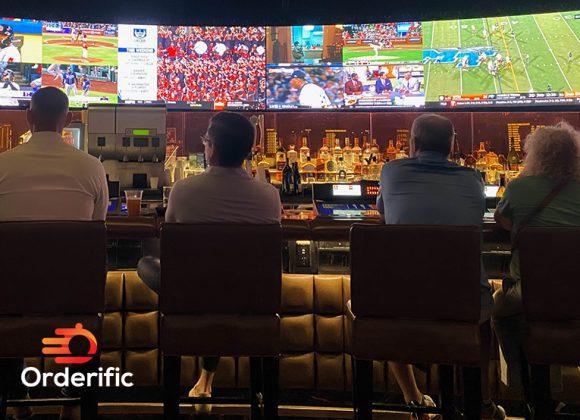Introduction
The hospitality industry stands at the brink of a revolution, poised to leverage the vast potential of AI in hospitality. Embracing AI technology means enhancing customer service and guest experiences, from personalizing recommendations based on guest preferences to deploying AI-powered chatbots for swift responses. AI tools can streamline the hospitality business, optimizing operational efficiency and revenue management. AI algorithms allow for a refined customer experience, transforming the traditional hotel industry landscape. Now, repetitive tasks are automated, and hotel staff can focus more on enhancing guest satisfaction. Within this digital transformation, the hospitality sector, including giants like Marriott International, is at the forefront, exploring AI applications to redefine the future of hospitality.
What Is AI In The Hospitality Industry?

AI in the hospitality industry is a transformative force, integrating cutting-edge artificial intelligence into various aspects of service delivery, operational efficiency, and revenue management. This integration enhances the guest experience by offering personalized services, quicker responses, and seamless transactions.
AI And Guest Experience
Artificial Intelligence is pivotal in transforming guest experiences in the hospitality industry. For instance, AI-powered chatbots and virtual assistants are now common in many hotels, providing 24/7 customer service and instant responses to guest inquiries. They offer personalized recommendations based on guest preferences, enhancing customer experience and guest satisfaction. Moreover, AI algorithms predict guest behavior, allowing for a more tailored and appealing experience for each hotel guest.
AI And Hospitality Operations
Hospitality businesses are leveraging AI technology to improve operational efficiency. Artificial Intelligence tools are employed to automate repetitive tasks, freeing hotel staff to concentrate on more creative and guest-focused duties. This shift in task allocation not only improves staff productivity but also enhances the overall customer service experience.
AI And Revenue Management
In revenue management, the hospitality industry finds much value in AI’s predictive capabilities. AI algorithms can analyze large data sets to predict booking patterns and price elasticity, helping hotels optimize revenue. This is particularly true in popular tourist destinations like Las Vegas, where accurate pricing can significantly impact a hotel’s bottom line.
AI: A New Standard In Hospitality
With prominent players in the hospitality sector, such as Marriott International, investing heavily in AI applications, it’s clear that artificial intelligence is becoming a new standard in the hospitality industry. AI is not only reshaping the hotel industry but is also setting a new benchmark for customer service, guest experience, and operational efficiency.
From providing streamlined services to enhancing guest satisfaction and boosting revenue, AI’s role in the hospitality industry cannot be understated. It’s an exciting time for this sector, as the integration of AI technology continues to redefine the future of hospitality. AI is no longer a futuristic concept but a present reality, and those not on board risk being left behind.
How Is AI Being Used In The Hospitality Industry?
Operations
AI has significantly transformed operational procedures in the hospitality industry. Advanced AI systems are now being utilized for tasks such as room service automation and efficient booking systems. For instance, AI robots in hotels can perform a range of tasks such as delivering room service orders, cleaning rooms, and even conversing with guests in multiple languages, ensuring a smooth experience. On the other hand, AI-powered booking systems make the reservation process more efficient, providing real-time information about room availability and allowing for direct bookings through the system. This minimizes the need for manual intervention, reducing administrative tasks for hotel staff, and allowing them to focus on enhancing guest satisfaction. In the realm of inventory management, AI algorithms can predict supply chain disruptions and manage stock levels effectively. These AI-driven operational strategies not only improve efficiency but also reduce overhead costs, contributing positively to the bottom line of hospitality businesses.
Marketing
AI has drastically revolutionized marketing strategies within the hospitality industry. Utilizing AI’s data analysis capabilities, hotels can now offer personalized marketing content, resulting in increased customer engagement and loyalty. AI tools make use of customer data such as previous bookings, browsing history, and feedback to create targeted marketing campaigns. This hyper-personalized approach allows businesses to make tailored offers that resonate with individual customer preferences, enhancing their likelihood of booking.
AI-powered CRM systems are being used to manage customer relationships more effectively. They can segment customers based on demographics, behavioral patterns, and preferences which helps in sending relevant marketing content. AI chatbots also play a key role in marketing by responding to customer inquiries promptly, driving engagement, and fostering customer relationships.
AI’s predictive analytics can foresee market trends and customer behavior, allowing businesses to plan their marketing strategies accordingly, resulting in optimized ad spend and increased ROI. AI tools are also employed to monitor and analyze social media platforms and online reviews, thereby providing insight into customer sentiment and helping to shape marketing strategies.
In conclusion, AI’s integration in marketing within the hospitality industry has enabled businesses to offer a more personalized and efficient customer experience, while also improving their bottom line. The future certainly looks promising as AI continues to evolve and redefine marketing in the hospitality sector.
Revenue
Artificial Intelligence is instrumental in revolutionizing revenue management in the hospitality industry. By leveraging AI’s predictive capabilities, hotels can optimize pricing and maximize revenue. AI algorithms, with their ability to analyze vast amounts of data, can accurately forecast demand, evaluate price sensitivity, and determine optimal room rates. During peak tourist seasons or events, AI-driven dynamic pricing systems adjust room rates in real-time based on supply and demand, ensuring profitable pricing strategies.
Furthermore, AI systems can predict booking cancellations and no-shows, enabling hotels to effectively manage room inventories and avoid revenue losses. They also facilitate the creation of personalized pricing offers, increasing customer satisfaction and loyalty, which ultimately lead to increased revenue.
AI’s role in revenue management extends to competitor analysis as well. AI tools can monitor competitor prices, occupancy rates, and customer reviews, providing valuable insights for strategic pricing decisions.
In a nutshell, the integration of AI in revenue management not only maximizes profitability but also delivers a more personalized and enhanced guest experience. As AI continues to evolve, its influence on revenue management in the hospitality industry is set to increase, offering vast potential for growth and profitability.
Guest Experience
In the realm of guest experience, AI has truly reshaped the hospitality industry. AI-powered solutions offer personalized experiences and services, making each guest feel valued. From smart rooms equipped with AI technology that caters to guest preferences for lighting, temperature, and entertainment, to AI chatbots that provide swift, 24/7 customer support, the impact is far-reaching. AI also aids in predicting guest preferences, allowing for customized services and recommendations, which significantly enhances the guest experience. In essence, AI is transforming the hospitality industry, setting new standards for guest experience and satisfaction. With the integration of AI, the hospitality industry has made a giant leap in offering superior, personalized, and memorable experiences to guests, contributing to increased customer loyalty and repeated business.
HR And Labour
In the Human Resources (HR) and labor aspect, AI is making significant strides within the hospitality industry. AI automates routine HR tasks such as resume screening, scheduling interviews, and onboarding, thereby saving time and reducing the workload of HR personnel. AI-powered HR systems also aid in employee training and development. They can identify training needs, devise personalized training programs, and assess their effectiveness, resulting in a highly skilled and efficient workforce.
Furthermore, AI plays a crucial role in labor management. It can predict staffing needs based on factors such as occupancy rate, time of year, and local events. This helps in allocating staff efficiently, preventing overstaffing or understaffing situations, and optimizing labor costs. AI can also identify patterns in employee behavior and performance, assisting in employee engagement and retention strategies.
In summary, the integration of AI in HR and labor management enhances efficiency, optimizes labor costs, and improves employee management. AI’s role in this sector is continually evolving, promising a future where HR and labor management are more strategic, personalized, and efficient.
Data Analytics
Artificial Intelligence has taken the role of data analytics in the hospitality industry to new heights. AI-powered data analytics tools provide businesses with the ability to make sense of the vast amounts of data they collect, deriving actionable insights and forecasts. These tools can analyze patterns in customer behavior, booking trends, and market dynamics, providing valuable information to make strategic decisions. For example, AI data analytics can reveal peak booking times, popular amenities, or demographic patterns, which can be crucial in shaping operational strategies, marketing campaigns, or pricing decisions. Furthermore, AI analytics tools can predict future demand, enabling businesses to plan accordingly and optimize their revenues. This predictive capability is particularly vital in revenue management, where understanding future demand can help in accurately setting room rates. In essence, AI-powered data analytics is a game-changing tool in the hospitality industry, aiding in informed decision-making, strategic planning, and profitability.
What Are The Benefits Of AI In The Hospitality Industry?
Enhanced Customer Service With AI
The use of Artificial Intelligence (AI) in the realm of customer service within the hospitality industry has proven to be an absolute game-changer. AI tools, in particular AI-powered chatbots, have brought about a revolution, providing guests with instant responses and round-the-clock service. These virtual assistants enhance the guest experience by offering personalized recommendations tailored to guest preferences. AI algorithms also enable these chatbots to predict guest behavior, allowing them to provide prompt and precise assistance, thereby greatly improving guest satisfaction.
AI Streamlining Operations
Hospitality businesses are actively deploying AI technology to effectively streamline their operations. The hotel industry, for instance, employs AI tools for the automation of repetitive tasks. By doing so, hotel staff are freed up to focus more on guest-focused duties, which in turn enhances the overall guest experience. Furthermore, AI in operational efficiency plays a significant role in reducing overhead costs, thus improving the financial health of the hospitality business.
Revenue Management With AI
In the sphere of revenue management, AI has had a profound impact on the hospitality industry. AI algorithms are employed to analyze large data sets, helping hotels predict booking patterns, and price elasticity, and optimize their revenue. For instance, in popular tourist destinations such as Las Vegas, dynamic pricing powered by AI greatly influences a hotel’s profitability.
AI: Setting New Standards
Marriott International, along with other major players in the hospitality sector, is investing heavily in AI applications, signifying the pivotal role of AI in this industry. AI technology is not only reshaping operations but also setting new benchmarks for customer service, guest experience, and operational efficiency in the hotel industry. AI’s ability to offer streamlined services, enhance guest satisfaction, and boost revenue makes it an indispensable asset in the hospitality industry.
AI’s Role In HR And Labour
AI technology has also made significant contributions to the Human Resources (HR) and labor management aspects of the hospitality industry. AI automates routine HR tasks, aids in employee training, and predicts staffing needs. This helps optimize labor costs and improves employee management, making HR and labor management more strategic and efficient.
Data Analytics With AI
AI-powered data analytics tools have revolutionized the hospitality industry. They provide businesses with the ability to analyze vast amounts of data, deriving actionable insights that help in informed decision-making, strategic planning, and profitability. For example, AI data analytics can reveal peak booking times, popular amenities, or demographic patterns, which can be crucial in shaping operational strategies, marketing campaigns, or pricing decisions in the hospitality sector.
In conclusion, AI technology, due to its vast potential and diverse applications, has become an integral part of the hospitality industry. Whether it’s improving customer service, enhancing operational efficiency, or optimizing revenue management, AI has proven its worth across various aspects of the industry.
Conclusion
In summation, the role of Artificial Intelligence (AI) in the hospitality industry is not only transformative but also indispensable. It enhances customer service, optimizes operations, revolutionizes revenue management, sets new industry standards, and offers advanced data analytics. AI technology, with its capabilities of personalization, prediction, and automation, has redefined the hospitality landscape, making it more efficient, profitable, and customer-centric. As AI continues to evolve, the hospitality sector is set to witness even more profound changes and opportunities for growth.
Are you ready to harness the power of AI in your hospitality business and unlock its full potential? Visit Orderific today and schedule a demo to see how AI can revolutionize your operations and guest experiences.
FAQs
What is AI in hospitality and how does it work?
AI in hospitality refers to the use of artificial intelligence technologies to enhance operations, customer service, and overall guest experiences in the hospitality sector.
How is AI being implemented in the hotel industry?
AI is implemented in the hotel industry through smart rooms, AI chatbots for customer service, predictive analytics for revenue management, and automation of routine tasks.
What benefits can AI bring to hospitality businesses?
AI can enhance customer service, streamline operations, optimize revenue, and provide valuable data insights.
Are there concerns about privacy and data security with AI in hospitality?
Yes, ensuring privacy and data security is crucial when implementing AI in hospitality.
Can smaller hotels or businesses afford to implement AI in their operations?
Yes, AI implementation can be scalable and affordable for smaller establishments as well.













